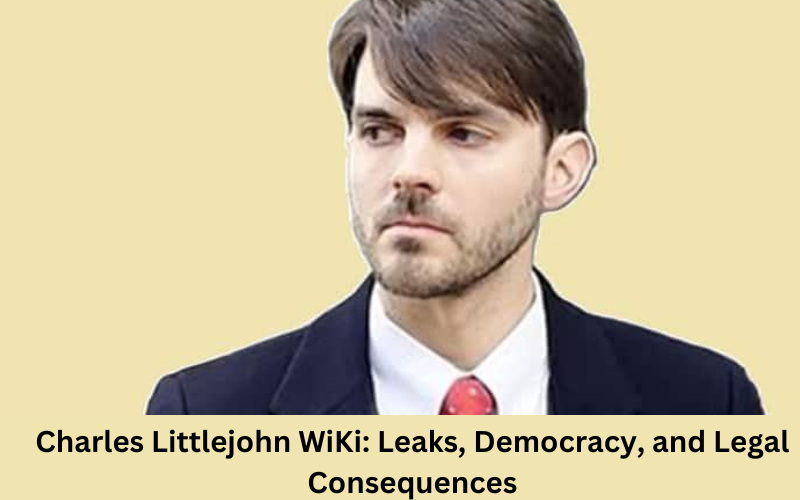Charles Littlejohn was living an ordinary life for a 38-year-old. He grew up in St. Louis, got a degree in economics from the University of North Carolina at Chapel Hill, and landed a consulting gig dealing with IRS contracts. But things took an unexpected turn when Littlejohn decided to pull a Julian Assange and leak confidential tax records to the press. This article explores Charles Littlejohn Wiki, leaks, its relations to democracy and legal consequences.
An “Unprecedented” Breach with An iPod
In what the Justice Department called an “unprecedented” breach, Littlejohn downloaded taxpayer information to a private website and personal devices like an iPod. We expect this kind of behavior from teenagers trying to load up their first MP3 player, not from a professional handling sensitive data. But at least we know Littlejohn’s iPod had more than just Linkin Park and Smash Mouth on it after this episode.
A Belief Gone Wrong: When Transparency Turns Criminal
Littlejohn claimed he leaked the tax records of former President Donald Trump and others out of a “sincere misguided belief” in transparency. However sincere, his methods were flat out illegal. As much as we all love a good conspiracy theory, you can’t just hack IRS records and send them to the New York Times because you assume a cover up. Littlejohn found out the hard way that a belief in truth and transparency does not justify violating privacy.
The Judge Throws the Book at Littlejohn
For his actions, Littlejohn got slammed with the maximum 5 year prison sentence by U.S. District Judge Ana Reyes. The judge called Littlejohn’s leaks “an attack on democracy” akin to the January 6th Capitol riots. That’s a bold comparison for releasing tax documents, but the judge clearly wanted to make an example out of Littlejohn. Littlejohn’s gonna be chilling in prison for a while because of this stunt. Plenty of time to ponder whether leaking confidential docs was a righteous act or just a crime. He wanted to expose corruption, but broke some serious laws doing it.
The Delicate Balance of Transparency and Privacy
This Littlejohn dude really stirred things up. His sneaky leak has people arguing about whether the public deserves to know sketchy private info on politicians and celebs. Is it ever OK to break the law if you think it’ll expose lies and hypocrisy? Does the people’s right to the truth trump privacy? It’s a tough call. Littlejohn followed his conscience and dropped those confidential docs like an OG whistleblower. But he still broke mad laws and is going to do hard time. A short simple action, but the fallout is really complex. Now folks got to figure out how to balance truth and privacy in a democracy.
How much right to confidentiality do public figures have? When does pursuing truth cross ethical lines? Littlejohn thought he was informing citizens, but ended up admitting he undermined faith in institutions. It seems there are no easy answers when transparency and constitutional rights collide. We need both robust information and trust in the rule of law.
Charles Littlejohn Wiki: Consequences for Compromising Data
So what lessons can we learn from the saga of Charles Littlejohn? First, leaking private data has consequences, even if motivated by public interest. Second, individuals in trusted positions need to handle sensitive information ethically. And third, promoting transparency requires respecting laws and institutional processes. Littlejohn’s “unprecedented” actions created legal precedents no one should want to repeat.
In the end, Charles Littlejohn acted alone, outside proper channels. His sentence makes it clear that individual breaches of privacy, however well-intentioned, are not acceptable. With democracy under strain, now more than ever, we need transparency and truth as much as confidentiality and trust. The Littlejohn case prompts all of us to reflect on how to ethically balance these civic virtues.
Conclusion
The complex case of Charles Littlejohn has prompted much debate about finding the right equilibrium between transparency and privacy in democratic society. While Littlejohn’s motivation may have been to serve the public good, his methods for leaking confidential information were unequivocally illegal. This violation of law and ethics undermined fragile faith in institutions rather than reinforcing them.
As we move forward from this contentious moment, the Littlejohn saga provides some cautionary lessons. We must continue pursuing truth and transparency but through proper channels that do not infringe on constitutional rights. Blind adherence to any single principle usually leads us astray. Only by thoughtfully balancing competing civic virtues can we build a democracy responsive to its citizens yet protected by impartial laws.
The judicial system delivered its verdict on Charles Littlejohn. But the broader questions stirred up by his actions remain open for each citizen to contemplate. How we ultimately answer them will shape the character of our democracy for years to come. By reflecting deeply on the Littlejohn case, we take small steps toward a society graced by both enlightenment and ethical responsibility.
FAQs: Charles Littlejohn Wiki
Q1: Who is Charles Littlejohn?
Charles Littlejohn is a 38-year-old man who used to work for the IRS. Anyways he leaked a bunch of confidential tax stuff belonging to Trump and others to the media. The Justice Department was super pissed and called it an “unprecedented” breach of privacy.
Q2: What did Charles Littlejohn do?
While working for an unnamed consulting firm contracted by the IRS, Littlejohn illegally downloaded taxpayer information to a private website and personal devices like an iPod. He then sent this confidential data to media outlets including The New York Times and ProPublica.
Q3: Why did Charles Littlejohn leak this confidential information?
Littlejohn claimed he leaked the tax records out of a “sincere misguided belief” that he was serving public interest. He stated that an informed citizenry makes better decisions. However, his methods for disclosing the information were illegal.
Q4: How did the judge view Charles Littlejohn’s actions?
Judge Reyes compared Littlejohn’s leaks to the January 6th Capitol attack, stating both were threats to constitutional democracy. She criticized the Justice Department for only bringing one charge against Littlejohn given the scale of his data theft.









